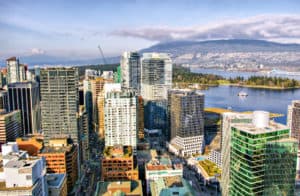An increase in the number of terror attacks around the world is having an unavoidable influence on the attitude of Canadians, according to an expert from a leading survey provider.
Tony Coulson from Environics Research says that while Canadian society continues to ‘evolve toward a more open and flexible outlook’ in the long term, a recent increase in terrorist activity is ‘strengthening the will of those who believe that people coming to Canada from elsewhere are more likely to bring trouble than valuable energy and ideas’.
Coulson, in an article for the Globe and Mail, highlights that two thirds of Canadians remain open to immigration. But he believes attitudes among the remaining third are hardening due to world events.
“Although Canada’s long-term values trajectory is toward this latter worldview defined by adaptability, questioning of authority, and openness to difference, our most recent survey reveals a modest stalling of this evolution,” Coulson writes.
“Perhaps this change is a function of many people’s sense that the world is becoming a scarier place. Regardless, as Canadians and their leaders debate policy in the years ahead, it is useful to remember the values landscape that underlies our reactions to the latest headlines.”
………………………….
The latest Environics survey suggests the following:
- Majority of Canadians expect a terror attack here in the next two years.
- A third say they will change their daily routines by reducing trips to public places or changing where and when they travel.
- More than half believe bringing individuals responsible for attacks to justice is sufficient punishment, where as four in 10 support war against terrorists.
- A quarter are happy for police to snoop on phone calls and texts without a specific warrant.
- Two thirds of Canadians are open to immigration and express less acceptance of police ‘snooping’.
- Immigration from certain regions should be slowed, according to four in 10, and a quarter say it should be eliminated entirely.
………………………………….
Coulson sees two different sets of values emerging between those who want to limit immigration and those are open to it.
Key consistent values in the limit immigration group are acceptance of police snooping, and support for going to war to end terror. They also score highly on traditional values regarding family, gender and patriarchy, Coulson writes. Above average scores on xenophobia and cultural assimilation are also common.
Among the two thirds of Canadians who are open to immigration, there is less acceptance of police snooping and more support for individual justice. “These Canadians hold values such as adaptability to complexity, global consciousness, multiculturalism, and social learning (the belief that people benefit from interacting with diverse others),” Coulson writes.
It is important to consider that when the federal government is shaping immigration policy, it needs to find a balance that pleases both groups.
By keeping the number of new immigrants at 300,000 for 2017, the same as 2016, the federal government is establishing a benchmark level for the coming years.
It could not jump in and significantly increase the number of newcomers without upsetting a large proportion of the electorate. Instead, it will add numbers, but in a strategic and measured way.
It is important to note that while the upper target for 2016 immigration is 305,000, the government is expected to exceed that figure after welcoming 320,000 newcomers in the year-end to July.
The upper target for 2017 is 320,000 but if 2016 is anything to go by, the government views these figures as guidance rather than imposing any strict limit.
Numbers will rise significantly in the come years, but the government knows the increase has to be carefully managed to appease all stakeholders.




